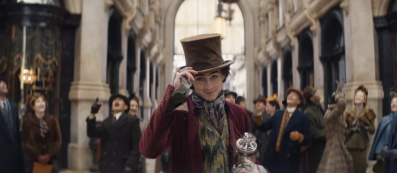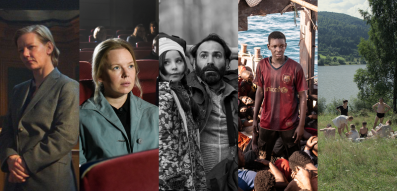The Fall of the House of Lear
What we should know about?
Coming out of the theatre house I overheard two high-school students bashing out on Richard III and his infamous rendezvous with Lady Anne, justifying his acts of getting back to the world right back as it deserved. I wonder what would they say of the Richard Eyre’s rendering of what seems to be one of the darkest family sagas of all eras, namely a story of an elderly king and his three daughters, all caught in a torrent of existence and drained of all hope for retribution.
It is both fragile and cruel in equal measure, just how the whole of King Lear´s plane is but a long fall down the blinding pit. Present-day London glows in crystal lights, Thames reflections and stones of a fortress but it is soon to move to the intimacy of some stellar faces, there to remain under the watchful eye that directed the likes of Iris, Notes on a Scandal and The Hollow Crown. The plane of existence is set in the duality so accentuated its totality seems frightful even on paper. The world is submitted to such thorough ordeal as minds and matter alike are breaking, forces are gnawing the eyeballs, the flow of inexhaustible vehemence shuns heaven from a cage and solace from a father´s chamber, so as though it is difficult to believe in the mercy of Gods and Universe alike.
A father divides his empire between his three daughters, based on their testimonial of love. Another father is led astray by one of his sons, thus losing the faith in the one that loves him well. Oh, and a fool, like a mirror, will follow the fallen king. There they stand, a simple exercises of spirit, statements. But this is Shakespeare and, if anything, things go sour and south. A fall so freely and unceremoniously stated, echoing in the rivers of a division line, making a strong hand limp, a fall so strong it makes a picture of a throne of blood with a mere memory of his name. Now the painful grace of his suffering is moreover emphasized with the fact it is Anthony Hopkins whom we see tearing his clothes in a tearful realization. It is his parched face with eyes of steel we see uttering the condemnation of Cordelia, who is turned into soothing absence until much too late, played exquisitely by a young Florence Pugh.
As the accolades of Goneril and Reagan - Emma Thompson and Emma Watson - are mere flowery showers of a weak embrace, Cordelia´s silence is here the ominous chase of the lost. The refusal to speak up on her father´s question is a call for a questioning of her life. The question posed for Cordelia is: "Who is she, now?" Similarly, we might ask who is Lear, after he divides his kingdom? Here begins the dismembering of the play that will see many variations. The fall of Lear begins right there, as he, much like Prospero, relinquishes his duties as a king and his ruling power is divided. But his sin deepens as he unmakes Cordelia so fully as if he wishes to crush her very soul out of existence, out of memory too. He unmakes the world- he is no longer a king nor a warrior nor a politician. He is too old to be his old self and too hindered in his hubris to be loved by anyone but those most loyal, whom he disowns far too easily.
Eyre´s way is that of a close look at the disheveling, and the range of voice and the subtlety of faces that screen enables is here put to a stellar use One allowance I will make to the movie re-makes of the plays goes to the usage of voice. It's most alluring how the silent implies "Why do I have my sister's husband?" with a simple strong look, a leaning on a father´s hand, her Love our father well while not glancing towards her sisters, do more damage than the loud stressing we hear so often on the stage.
Goneril is here shaped to a cutting-edge calmness while her less-confident sister provides an excellent counterpart. Characters are murky reflections of one another. Even the spaces are there not to be a shelter but to stand as visual metaphors for their way of being in the moment. Edgar - Sherlock´s Andrew Scott of Moriarty´s fame - as an astrophysicist is here almost a too dark allegory, a joke for the madman, surrounded with the eclipses of the sun in his first scene, only to lead later on his blinded father, the Duke of Gloucester, in a make-believe fall. The schemes of the world are laid out in the background and the silent fool accompanies it, speaking only when necessary.
It is the mutability, the uncertainty of the next breath that makes this play vitally active. What was once revered is now despised, where once was home we find the fires of exile. This mature acting game led by Hopkin´s royal performance is heartbreaking to witness. The vulnerability of a man who has tasted his own verdict and found it disgraceful.














